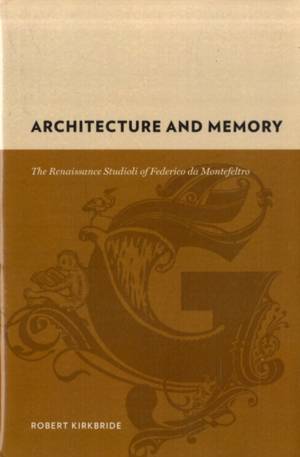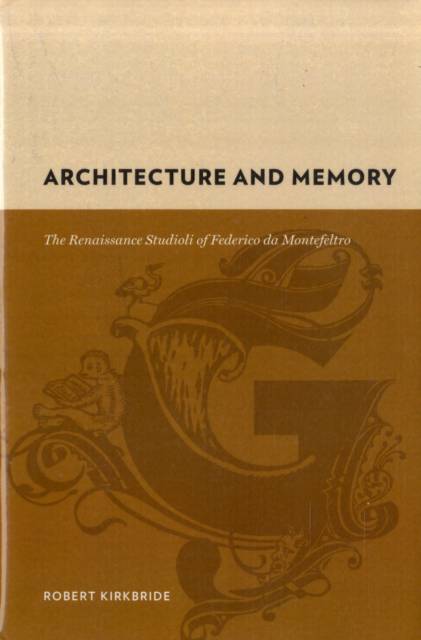
- Retrait gratuit dans votre magasin Club
- 7.000.000 titres dans notre catalogue
- Payer en toute sécurité
- Toujours un magasin près de chez vous
- Retrait gratuit dans votre magasin Club
- 7.000.0000 titres dans notre catalogue
- Payer en toute sécurité
- Toujours un magasin près de chez vous
Description
The studioli of the ducal palaces at Urbino and Gubbio, Italy, demonstrate architecture's capacity to transact between the mental and physical realms of human experience. Constructed between 1474 and 1483 for the military captain Federico da Montefeltro and his young motherless son, the studioli may be described as treasuries of emblems: they contain not things but images of things, rendered with remarkable perspectival exactitude.
These small, image-filled chambers reflect how architecture and its ornament equipped a quattrocento mind with metaphors for wisdom and methods for statecraft and intellectual activity. Drawing on the densely layered imagery in the studioli and text sources readily available to the Urbino court, Robert Kirkbride examines the position of the studioli in the Western tradition of the memory arts, considering how architecture bridged the mathematical arts, which lent themselves to mechanical pursuits, and the art of rhetoric, a discipline central to memory and eloquence. As subtle ramifications of material and mental craft, the studioli provided ideal methods for education and prudent governance, extending an ancient legacy of open-ended models that were conceived to activate the imagination and exercise the memory. At the time of their construction, the studioli represented the leading edge of technologies of visual representation and offer a case study of how contemporary advances in interactive technologies reactivate and transform ancient metaphors for thought and learning.Spécifications
Parties prenantes
- Auteur(s) :
- Editeur:
Contenu
- Nombre de pages :
- 252
- Langue:
- Anglais
- Collection :
Caractéristiques
- EAN:
- 9780231142489
- Date de parution :
- 11-11-08
- Format:
- Livre relié
- Format numérique:
- Ongenaaid / garenloos gebonden
- Dimensions :
- 152 mm x 229 mm
- Poids :
- 526 g

Les avis
Nous publions uniquement les avis qui respectent les conditions requises. Consultez nos conditions pour les avis.






